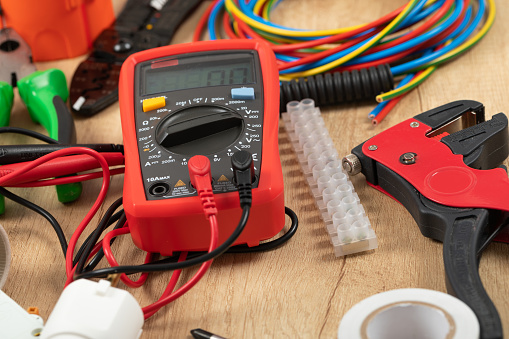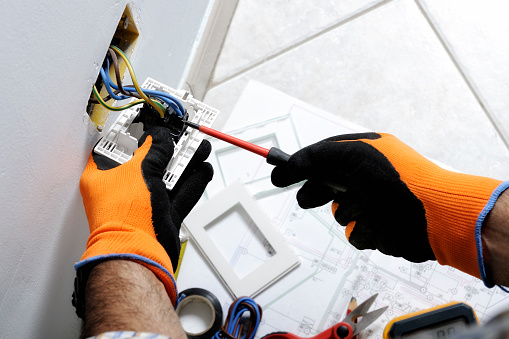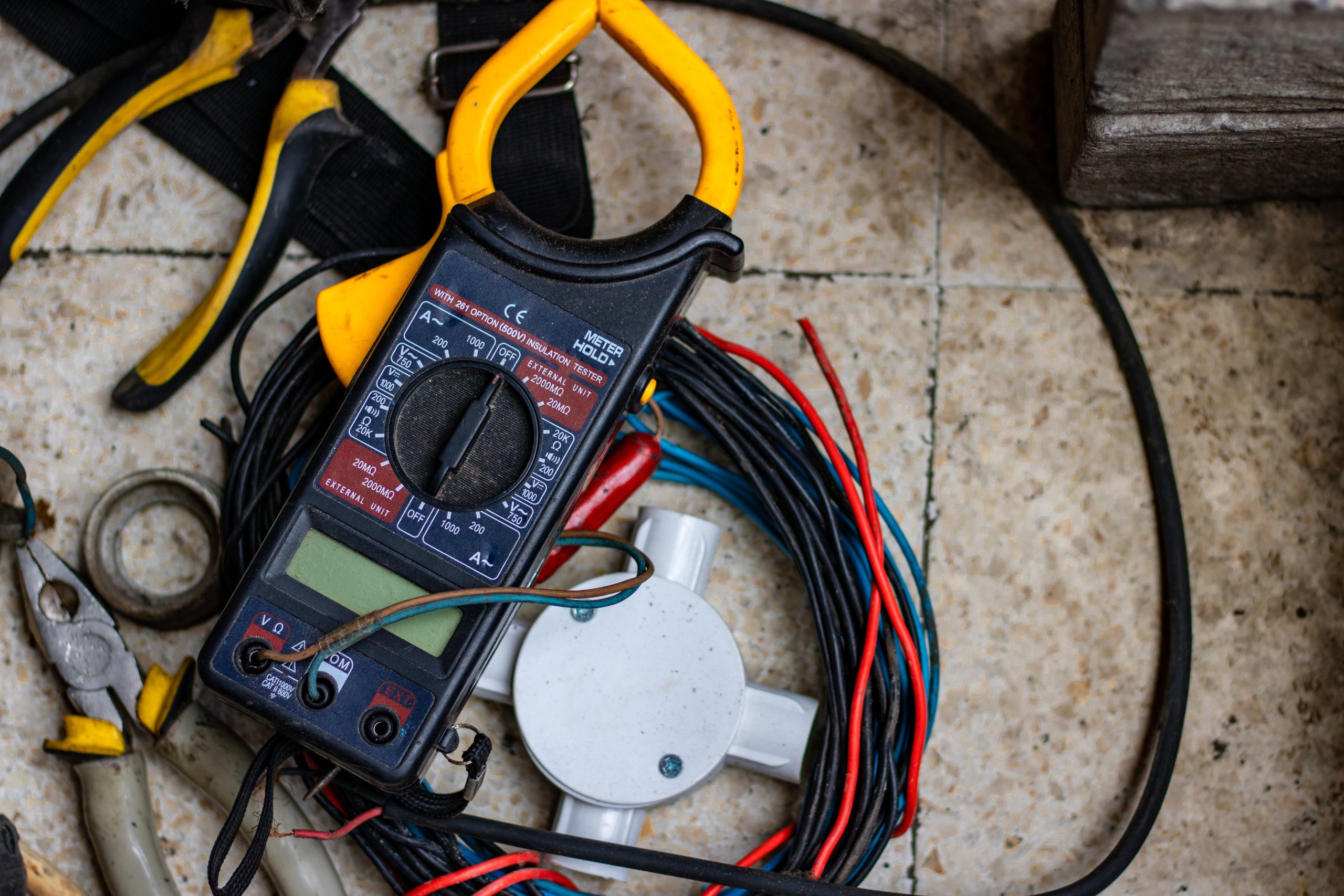Trying out your DIY skills? Make sure to stay safe! It might be tempting to take on electrical projects yourself, but it’s important to know and understand the safety regulations set forth by the National Electrical Code (NEC) first. National Electrical Code violations can lead to serious consequences, as electrical issues can cause fires, shock, and other dangerous accidents. That’s why it’s important to be aware of the most common NEC violations so you can take the right steps to ensure your safety. Let’s discuss it in detail.
1. Performing Electrical Work For Dear Ones
According to the various laws across North America, you can perform your home’s electrical work by yourself. As long as your work passes the inspection, no code violation will concern DIYers performing their own home wiring.
The problem arises when your friends and other near and dear ones hear that you perform electrical work well. They ask you to help with their work, which is a code violation in most places. Working in your home is fine, but you can perform the job in others’ homes with a license. Ensure to check your local municipality before electrical work in your home.
2. Failing To Install Proper Circuit Breakers
If the current in any part of a home exceeds a specific limit, circuit breaker boxes contain switches that “trip,” or they also shut themselves down to stop energy flow in that particular home area.
Suppose you avoid or ignore the details while installing a circuit breaker. In that case, you might not only be risking the safety of your family and home but also violating the national electric code. A wrong circuit breaker box can even be hazardous.
If you want to understand the electrical protection that protection goes where keep in mind the type of breaker designed to do so. Also, ensure to follow the national electric code.
Let’s discuss a few types of circuit breakers here.
a. Standard Circuit Breaker
Circuit breakers are responsible for the safety and protection of your home’s electrical equipment and wiring. The things included are air conditioners, stoves, furnaces, and dryers.
A Standard circuit breaker works better at protecting wiring and equipment than preventing fires and protecting people. This is why GFCIs and AFCIs have replaced these breakers. There are only a handful of places where standard breakers are being used, such as home electrical appliances.
b. Ground Fault Circuit Interrupter
Ground Fault Circuit Interrupter (GFCIs) helps protect people in small areas using small appliances and where water is also present. GFCI breakers have been the talk of the town for a while now, and they are usually required in kitchens, bathrooms, and outdoors.
However, experts are finding home electrical violations, particularly in the places like garages, crawl spaces, work areas in basements, and sump pumps.
Remember that GFCIs can only be installed on the ceilings or buried under a hydro massage tub with an access panel. It is because GFCIs need to be readily accessible to be reset.
c. Arc Fault Circuit Interrupter
Arc fault circuit interrupter (AFCIs) helps in protecting caught fire in residential areas where the appliances wires are likely to be crimped or pinched. In previous years, AFCI was required only in bedrooms. However, according to the recent National Electric Code changes, AFCIs are now required in all living areas.
They are designed with sophisticated electronics capable of detecting arcing conditions such as frayed lamp cords. A standard circuit breaker or others might only see the issue once the fire has started.
AFCI protection isn’t only required for newly constructed homes and places where the branch- circuit is modified, extended, or replaced.

3. Wiring Switches
Remember that all switch locations require a neutral wire. Such a type of national electric code was primarily planted to adapt to potential future uses. Electronic switches need to have a tiny amount of continuous electricity. That’s the reason they require a neutral wire run to them.
You may find exceptions in this NFC code. However, if the walls are open, avoid making the next person fish in a wire. Perform the job perfectly and ensure a neutral box in the wire.
4. Forgetting Tamper-Resistant Receptacles:
Tamper-resistant receptacles are designed so a kid cannot penetrate any object, such as paper clips. These receptacles are required for almost all locations, both outdoors and indoors. It is a great invention, so remember to use them.
5. Using A Ground Rod Electrode
If you remember, once the metal underground water piping was considered the best ground rod electrode for a more extended period. However, nowadays, you’ll see plastic underground pipes everywhere. Because it is thought that rebar in concrete footing or the foundation of a house is the more efficient and effective grounding system than the one (rod ground) we have been using for decades, so if you are using rebar in the new footings, make sure to use it as the primary grounding electrode.
We can say that if you have a new home with at least 20ft. of ½-in. rebar, this rebar embedded in those footings must be used as the primary grounding electrode. A recent national electric code requires extreme trade and project managers’ cooperation. Usually, the electrician arrives when the concrete people have finished their job. However, there should be communication. It’ll make their work more accessible than damaging concrete again.
6. Choosing The Wrong Cover For Outdoor Receptacles
On an outdoor, the only purpose of the cover is to protect while the receptacles aren’t in use. However, it is common for extension cords to be plugged in for a more extended period— for holiday lights. For instance, “bubble covers” or “In-use” protect all the time.
The national electric code explains a “wet location” that’s a place that’s likely to be saturated, whether from water or other liquid forms, along with unprotected locations exposed to climate changes.
The national electric code’s other definition of “damp location” is pretty subjective. However, if you’re worried about the receptacles getting wet, it’d be better to use an In-use cover.
Moreover, remember the weather-resistant receptacle. The national electric code needs to have all 15 and 20-amps. Cases will be considered whether or tamper-resistant when installed in both wet and damp locations.

7. Crowding A Service Panel
Remember that a crowding service panel needs a working clearance 30-wide, around three feet deep, six feet, and eight inches high in the national electric code.
Here a golden rule that you need to keep in mind is if you cannot find a way to keep the refrigerator before the panel, you need more working area. The clearance space is essential for protecting the person working on the board. Working safely is challenging when your arms are pinned to your sides.
The electrical panel also needs to be accessed quickly, which means it’d be better to use something other than those areas as storage space or to have a ladder to access the actual point of work. The wrong electrical panel locations are also not safe.
8. Installation Of Only A Few Receptacles
The primary objective of the national electric code is to prevent using the extension cords. A receptacle outlet must be within reach of a six-foot appliance cord from any point along a wall line. Also, that six feet cannot be measured across the passageway.
In short, extension cords are more likely to begin fires and create tripping hazards; the fewer extension cords are, the better.
9. Insufficient Electrical Bonding
Grounding differs from bonding, phone lines, plumbing, gas piping system, and coaxial code, which don’t need to be grounded and bonded to each other.
Bonding is essential so the voltage will equalize potential between conductive systems. It is also crucial to minimize the risk of a person becoming the path for current flow between two conductive systems in case the system gets more energized.
Moreover, in a lightning strike, the moderate voltage potential level reduces the risk of a high currency arcing among the systems prone to catch fire.
10. Outdated Wiring In Homes
Electrical wiring in dwellings constructed in 1970 or maybe before that will also be considered a violation of loan national electric codes. If you’ve seen old wiring, you’ll see the use of aluminum, which is safe but not secure if it is attached to the copper wiring. For old houses that still have aluminum wiring, the owner must call the inspector, so he’ll let you know whether it’s safe or not or if it’s installed appropriately or not. Inspection is complicated, so it’d be better to leave it to the professionals.

11. Improper Configuring Panels
Sometimes you get frustrated by the constant tripping fuse or breakers. Most DIYers hastily try to replace the previous breaker with a large capacity breaker. It’s highly hazardous and illegal to install wrong-configured panels, which violates national electric codes. A breaker should match the wire size to lead the capacity. Larger breakers allow more current flow before tripping, catching fires, or blowing out your home electricity system.
12. Overcrowding Wires
One of the most common violations of the national electric code is overcrowding wires. It’s only a violation but can be extremely dangerous. Too many cables cramped in a single hole or the same opening damages wires to each other. Also, the open cables can lead to catching fire, for instance, if you install a dehumidifier. If you want to avoid such a violation, don’t run more than three wires through one opening measuring ⅞ of an inch in diameter.
13. Illegal Splicing
When you connect two or more wires, it is known as splicing. Make sure professional electricians should do the splicing for temporary troubleshooting. Keep the splicing wire inside the junction boxes to minimize the risk of catching fire. If you want to avoid committing such violations, call a skilled electrician to perform such electrical works.
14. Nails And Screw Going Through Electrical Equipment
We understand that sometimes you need to use screws and nails to secure electrical components. However, it should meet specific criteria, so you don’t violate the national electric code. Use them on one side of the element, which is most likely the back side. If you’ve to run them through the electrical box, the wire in the package must be protected to remove the possibility of insulation deterioration. If the cables aren’t secured from one another, there’s a high risk of catching fire.
FAQs
1. What Are National Electrical Code Violations?
National Electric Code which is also known as (NEC) is a subgroup of frequently updated standards so you can safely install electric wirings. It was first published in 1897 and usually gets updated every three years.
NEC is responsible for providing guidelines for electrical installation to avoid any electric accidents and fires; as a homeowner, or mainly if you are an electrician, you need to keep an eye on the recent updates of NEC. It is crucial for contractors and electricians so they can do their job perfectly, ensuring that installation is secure, legal, and according to the code.
2. Why Is It Important To Follow The National And Local Electrical Codes?
The preeminent electrical code in the country is designed for the basics of electrical safety. The code is more significant when it is adopted into a new law by local jurisdictions. Following the code while performing any electrical work will reduce the risk of catching fire.
Final Thoughts
State laws or local authorities design National Electric codes that are implemented to install any electrical work with complete protection. You need to consider these codes to avoid having to face serious consequences. Sometimes people violate these laws and don’t even know about it. We’ve mentioned some common violations, and you can follow them to avoid future breaches.
If you follow the national electric code, it’ll guarantee you live in your home safely, have appliances and fixtures that generate smoothly, securing on troubleshooting electrical issues, reducing energy bills, and maintaining the high property resale value of your home.


